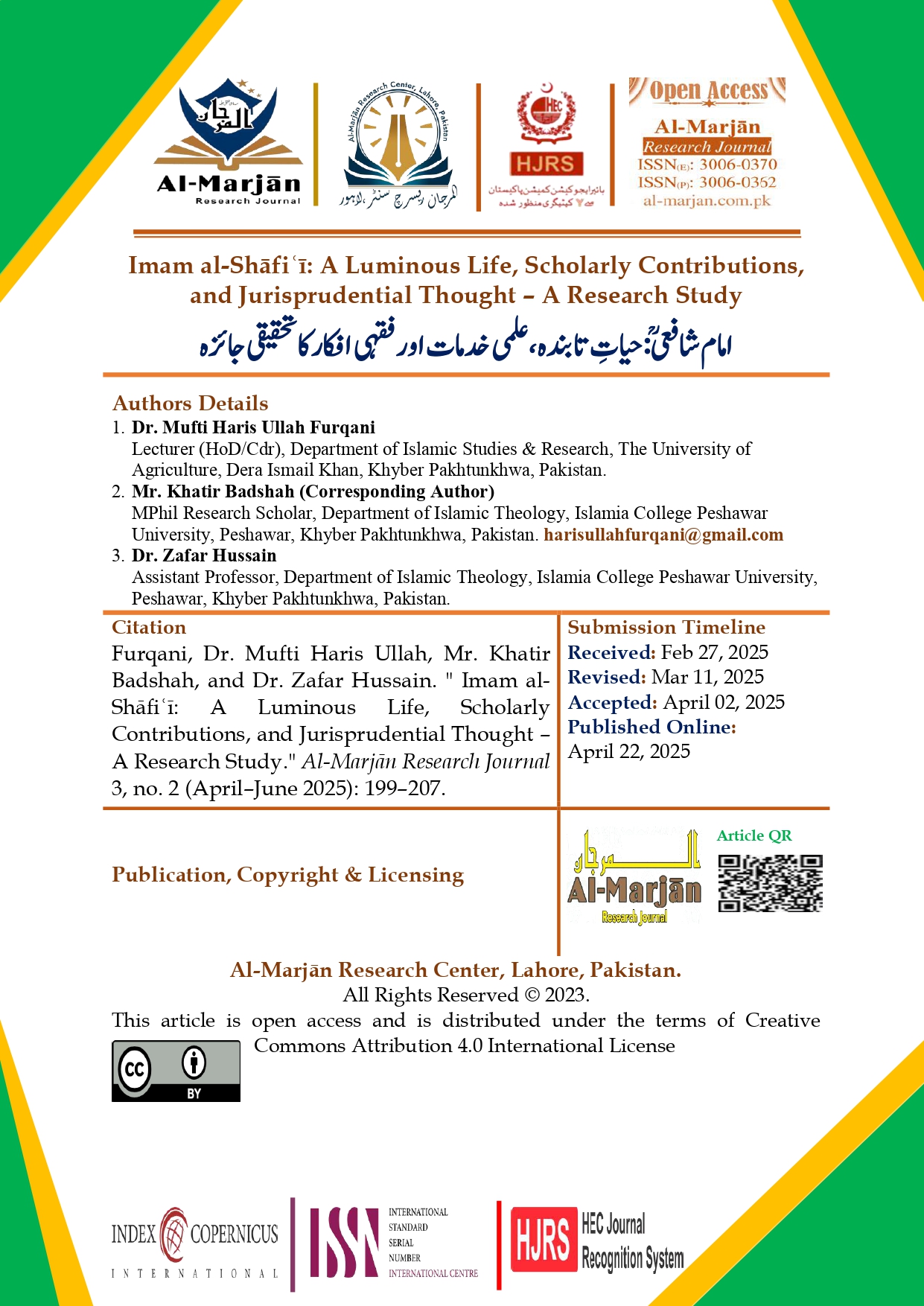Imam al-Shāfiʿī: A Luminous Life, Scholarly Contributions, and Jurisprudential Thought – A Research Study
امام شافعیؒ: حیاتِ تابندہ ، علمی خدمات اور فقہی افکار کا تحقیقی جائزہ
DOI:
https://doi.org/10.1234/8132db43Keywords:
Imam al-Shāfiʿī, Islamic Jurisprudence, Uṣūl al-Fiqh, Al-Risāla, Sunni Legal Tradition.Abstract
Imam Muhammad ibn Idrīs al-Shāfiʿī (767–820 CE) remains one of the most distinguished and influential figures in Islamic intellectual history. As the founder of the Shāfiʿī school of Islamic jurisprudence, he not only shaped the trajectory of Islamic legal thought but also systematized the foundational methodology of legal derivation known as Uṣūl al-Fiqh. This paper presents a brief yet comprehensive research-based analysis of Imam al-Shāfiʿī’s life, lineage, scholarly journey, and jurisprudential contributions. Born either in Gaza or Yemen and raised in Mecca, he displayed extraordinary intellectual potential from a young age, memorizing the Qur’ān and immersing himself in Ḥadīth and Fiqh. He studied under prominent scholars like Imam Mālik ibn Anas and later interacted with jurists in Yemen, Baghdad, and Egypt. His magnum opus Al-Risāla stands as the first foundational text on Islamic legal theory, outlining the authoritative sources of law: Qur’ān, Sunnah, Ijmāʿ (consensus), and Qiyās (analogical reasoning). He played a key role in bridging regional legal traditions and emphasized rationality alongside textual evidence. The paper also dispels certain myths propagated in later biographies, highlighting his deep reverence for earlier scholars including Imām Abū Ḥanīfa. Imam al-Shāfiʿī’s balanced and methodological approach continues to influence Islamic jurisprudence to this day. The article concludes by reaffirming his lasting impact and relevance in both historical and contemporary contexts of Islamic thought.






































